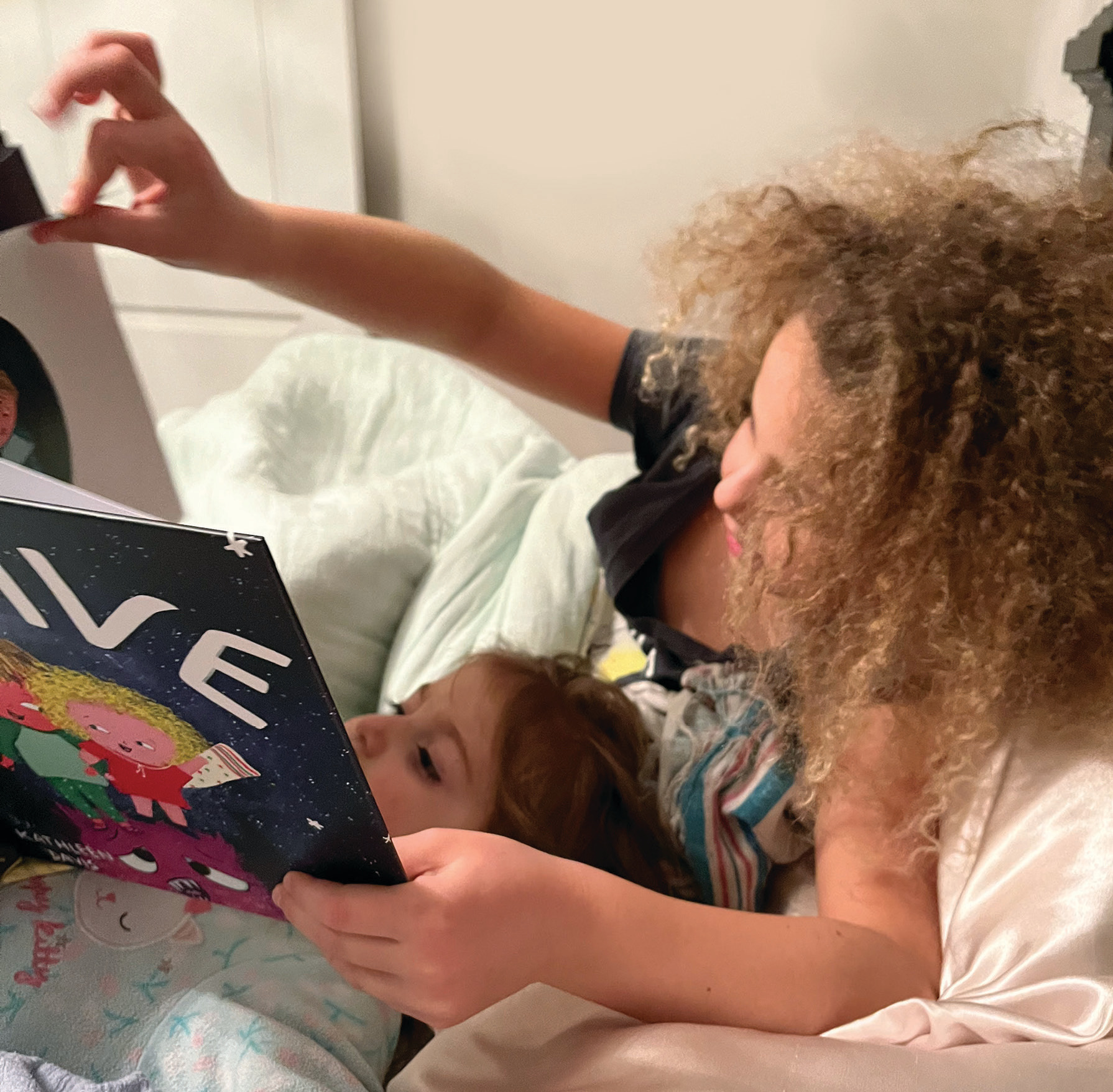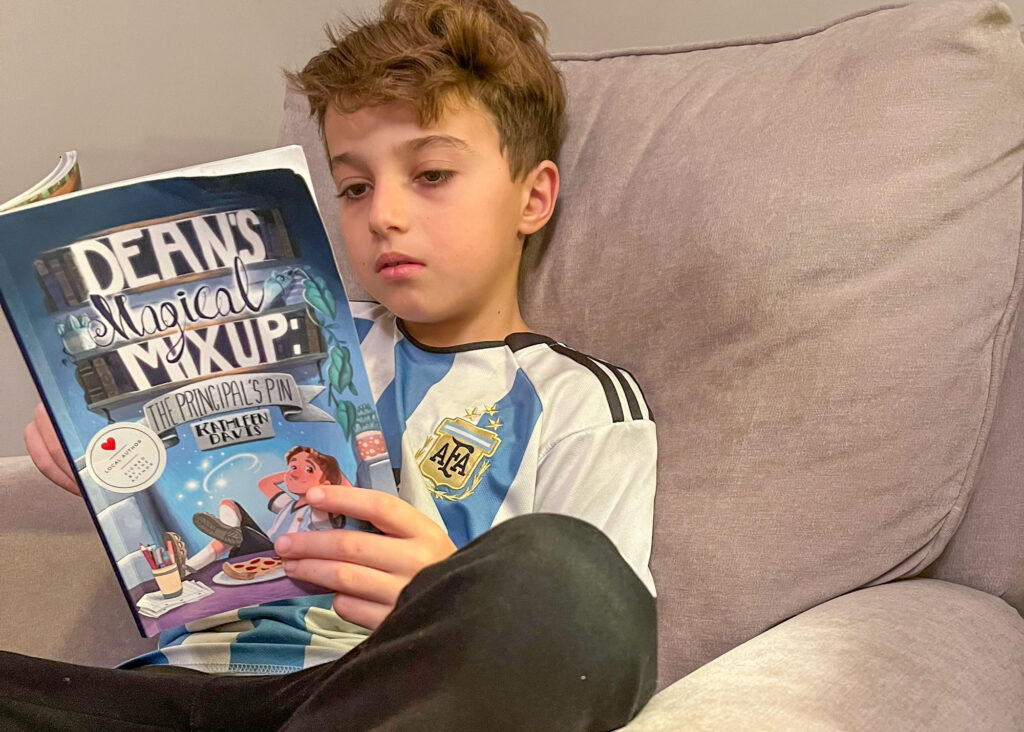We have always heard that reading is important, that reading aloud to kids is highly recommended and that if we want our kids to become lifelong learners, we must first start with reading. As parents, we know the value of reading, but do we fully understand why each component of reading is essential? Are we aware of the foundations of reading that help a child find success and, therefore, become more motivated to read?
There are, in fact, five pillars, or key concepts, at the core of every effective reading instruction program: phonemic awareness, phonics, vocabulary, fluency and comprehension. Each of these pillars helps support and create a good foundation for reading.
When trying to understand phonemic awareness, the best place to start is with our ears. Think of the sounds we hear in everyday speech. Connecting this to a child’s reading foundation means that the child is able to identify individual sounds in words and understand the connection of those sounds to letters in the alphabet. This is why reading to your child at a very young age is so important. The more you read (or just simply talk), the more exposure that child receives to word sounds. Furthermore, playing word games like rhymes and tongue twisters can also help a child identify the sounds in words. Music is another highly beneficial way to expose children to more words and rhyming patterns.
Phonics is the process of breaking down words into their individual sounds. Imagine a child who is learning to read a new word. That child must begin by chunking the word based on its sounds and syllables. Children must first understand the sounds the letters make and then connect them with more letters. A quick and easy way to work on this is “playing teacher.” You can do this in the car, at dinner, anywhere and anytime. Tell your child that he or she is the teacher. They need to give you words for you to sound out and spell. The “teacher” will need to check if you spelled the words correctly. You can take turns being the teacher. Add paper if necessary, or use your finger and write letters in the air. Mess up! Laugh! Make it fun!
The third strand, vocabulary, seems like common sense, and, in a way, it is. Essentially, the more vocabulary children are exposed to, the better their vocabulary (and hence reading ability) will be. Ever come across a new word you have never seen before? Maybe it was in a different language? You probably didn’t know how to read that word, where the vowels made short sounds versus long sounds, let alone what the word meant. This is one example why vocabulary is so important. When children sound out an unfamiliar word, they must automatically connect the word to a word they are familiar with. If they find a match and it makes sense in the sentence, they continue reading. If the word is not in their oral vocabulary, they will have a difficult time recognizing that word in print, even if they are able to produce an accurate pronunciation by decoding.
Vocabulary can be taught both directly and indirectly; however, new words are learned more effectively within context. Reading to children from a variety of texts (that might be above a child’s reading level) exposes children to new words that they might not be able to read or understand on their own. Reading aloud also allows for opportunities to discuss the meanings of those new words. The key to growing vocabulary is exposure to words; talking and having conversations at dinner, in the car, during bath time, etc., can all increase a child’s vocabulary. Listening to music and (dare I even suggest?) exposure to the “right” kind of television shows can also help with vocabulary growth. Lastly, don’t be afraid to use “big” words with kids. Use the words in context and, if necessary, explain the meaning.
As a child grows, reading becomes less about the focus of each individual word and transforms into the ability to read accurately and quickly. This is called fluency, and it provides a framework for concentration of the meaning of the text as a whole. Allowing children to read texts that are “below” their reading level will help support better fluency (and confidence). Once again, reading aloud to your children (with good expression — think theatrics!) provides an opportunity for them to hear a good fluent reader and exposes them to vocabulary and concepts that they might not be able to handle on their own. The goal is for children to be able to “read like they talk” — smoothly and with minimal errors.
Reading with good fluency is very important; however, it is not a standalone skill. If children are reading quickly with minimal errors but are struggling with understanding the texts, they might need to slow down. They might also need to move to simpler texts with more understandable concepts. Having children feel success while reading is extremely beneficial. Comprehension, the fifth strand, goes hand in hand with fluency. Comprehension is reading accompanied with understanding. Reading rate and accuracy are meaningless if children are unable to comprehend what they are reading.
Monitoring fluency and comprehension can be done through encouraging your child to read aloud. If he or she is continuously stumbling on words or sounding out words, you might need to assess if they should pick another genre or simpler texts altogether. Nonfiction can often be more difficult than fiction, and rhyming texts are usually the easiest genre (to read) since word patterns are more predictable. Asking basic questions about the texts children are reading allows a window into their understanding. “What is the problem?” “How do you think the problem will get solved?” “Why did the characters do what they did?” “What do you think will happen next and why?” The more engaged you are in their learning, the higher their odds of success.
Children who have mastered the five pillars of reading and are able to read independently are shown to have a better grasp on “general knowledge” as a whole than those who do not. This means that, in general, your child’s journey through school will come easier. In addition, a child who is not struggling with the foundational skills needed to be a successful reader will be more motivated to read throughout their lives.
It is never too late to help a child become a better reader. Determining which pillar a child is struggling with is the first step. Remember to make it fun, take it one step at a time and keep reading aloud to your children, even the big ones.




